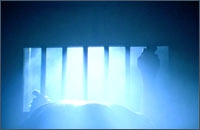Kung Fu Cult Cinema
Kung Fu Cult Cinema is dedicated to bringing you an awesome collection of movie reviews from accross asia. Featureing both classic and new films from Hong Kong, Japan, South Korea. Thailand, India and more!
Copyright © 1999 - 2019 Kung Fu Cult Cinema
Film Category
Action
Asian Related
Black Comedy
Cat. III
Chambara
Chinese Opera
Comedy
Crime
Cyberpunk
Documentary
Drama
Experimental
Fantasy
Gangster
Gore
Horror
Jidaigeki
Kaiju
Kung Fu
Martial Arts
Music
Nihilistic Horror
Pinku
Romance
Science Fiction
Sport
Supernatural
Swordplay
Thriller
Tokusatsu
War
Wuxia
Yakuza
A to Z
Awards
Film Country
Copyright © 1999 - 2019 Kung Fu Cult Cinema







